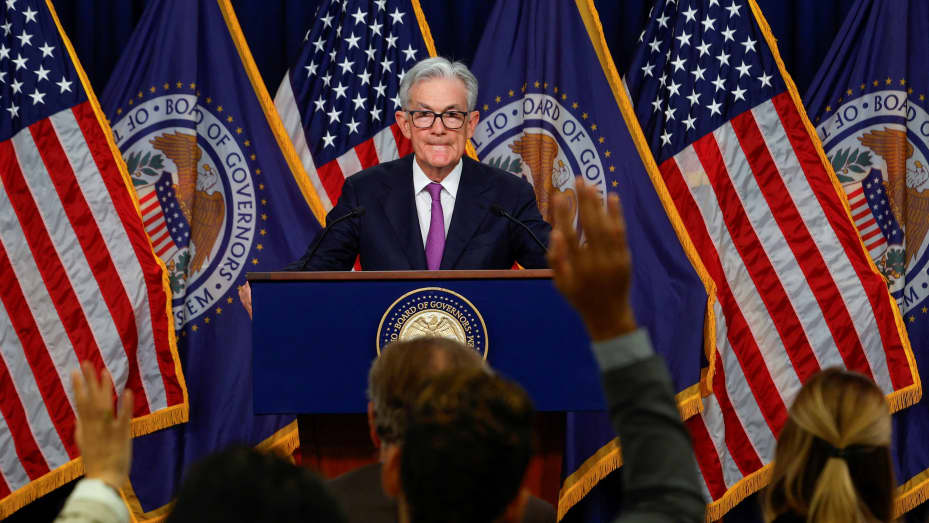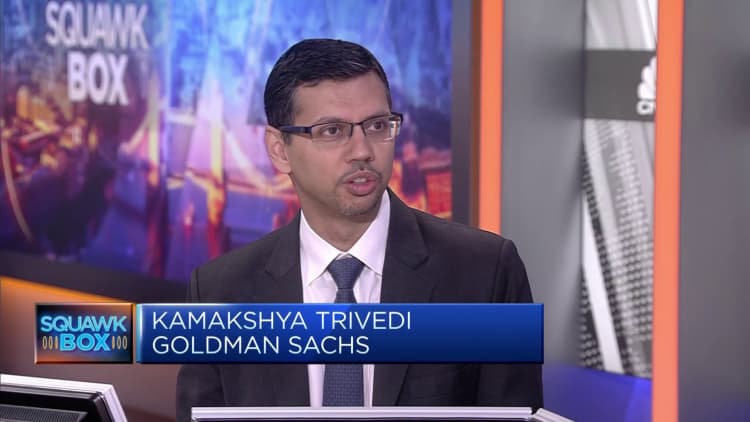
UBS expects the U.S. Federal Reserve to cut interest rates by as much as 275 basis points in 2024, almost four times the market consensus, as the world’s largest economy tips into recession.
In its 2024-2026 outlook for the U.S. economy, published Monday, the Swiss bank said despite economic resilience through 2023, many of the same headwinds and risks remain. Meanwhile, the bank’s economists suggested that “fewer of the supports for growth that enabled 2023 to overcome those obstacles will continue in 2024.”
UBS expects disinflation and rising unemployment to weaken economic output in 2024, leading the Federal Open Market Committee to cut rates “first to prevent the nominal funds rate from becoming increasingly restrictive as inflation falls, and later in the year to stem the economic weakening.”
Between March 2022 and July 2023, the FOMC enacted a run of 11 rate hikes to take the fed funds rate from a target range of 0%-0.25% to 5.25%-5.5%.
The central bank has since held at that level, prompting markets to mostly conclude that rates have peaked, and to begin speculating on the timing and scale of future cuts.
However, Fed Chairman Jerome Powell said last week that he was “not confident” the FOMC had yet done enough to return inflation sustainably to its 2% target.

UBS noted that despite the most aggressive rate-hiking cycle since the 1980s, real GDP expanded by 2.9% over the year to the end of the third quarter. However, yields have risen and stock markets have come under pressure since the September FOMC meeting. The bank believes this has renewed growth concerns and shows the economy is “not out of the woods yet.”
“The expansion bears the increasing weight of higher interest rates. Credit and lending standards appear to be tightening beyond simply repricing. Labor market income keeps being revised lower, on net, over time,” UBS highlighted.
“According to our estimates, spending in the economy looks elevated relative to income, pushed up by fiscal stimulus and maintained at that level by excess savings.”
The bank estimates that the upward pressure on growth from fiscal impetus in 2023 will fade next year, while household savings are “thinning out” and balance sheets look less robust.
“Furthermore, if the economy does not slow substantially, we doubt the FOMC restores price stability. 2023 outperformed because many of these risks failed to materialize. However, that does not mean they have been eliminated,” UBS said.